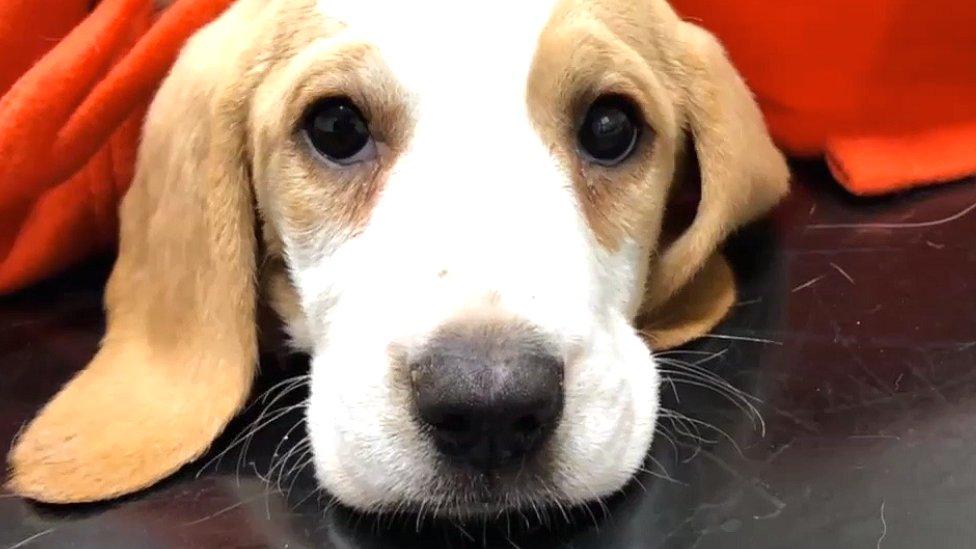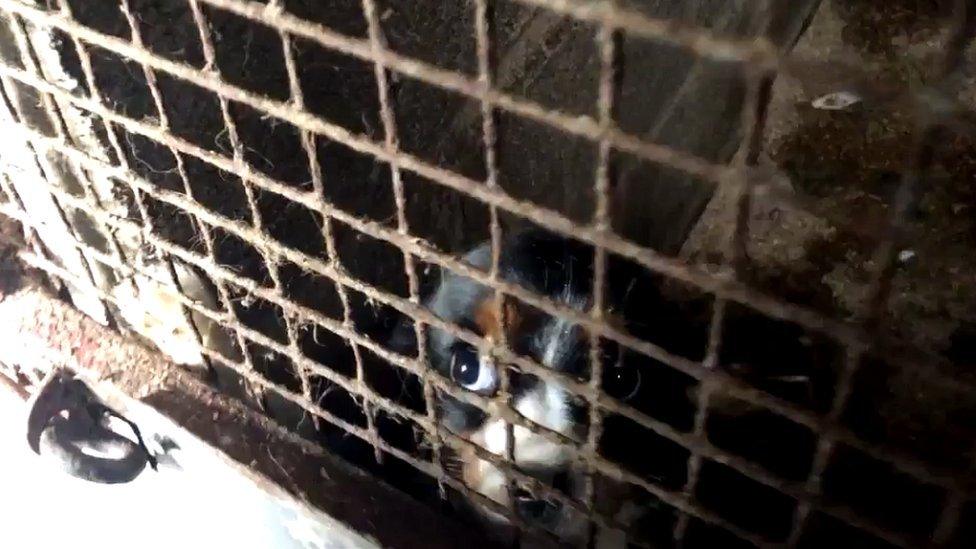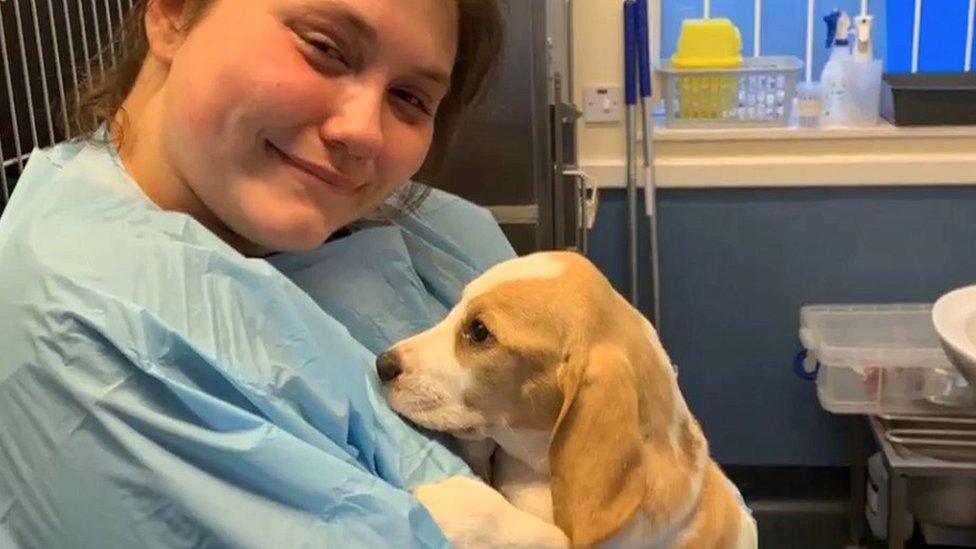Lucy's Law: Ban on third party puppy and kitten sales in Wales
- Published

The law was named after a dog rescued from a breeding farm in Wales
A ban on third party puppy and kitten sales will be made law in Wales within the next few months.
Campaigners have long called for the regulation as a way of stopping so-called puppy farms from operating in poor conditions.
Lucy's Law, named after a dog rescued from a breeding farm in Wales, came into force in England from April.
After a consultation, the Welsh Government announced a similar ban will come into effect in Wales.
Current Welsh Government regulations mean a local authority licence is only needed by those breeding three litters or more per year.
In October 2019, a BBC Wales investigation into "filthy" conditions at breeding sites which had been licensed and approved by councils sparked a review of the law.
Eileen Jones, founder and rescue co-ordinator at Friends of Animals Wales, called delays "not good enough", saying Lucy's Law could have been enacted quite quickly.

The Welsh Government previously admitted the move would not solve the problem overnight
A public consultation ran between June and August, which found: "The commercial third party sales of puppies and kittens may be associated with poorer welfare conditions for the animals compared with direct purchase from the breeder.
"For example, the introduction to several new and unfamiliar environments, and the increased likelihood of multiple journeys for such puppies and kittens have the potential to contribute to an increased risk of disease, and lack of socialisation and habituation."
Of 226 responses, 98% wanted to see third-party sales banned.
Minister for Environment, Energy and Rural Affairs Lesley Griffiths confirmed a ban on commercial third-party sales will be introduced by the end of this Senedd (in May 2021).
- Published24 December 2019

- Published30 September 2019
